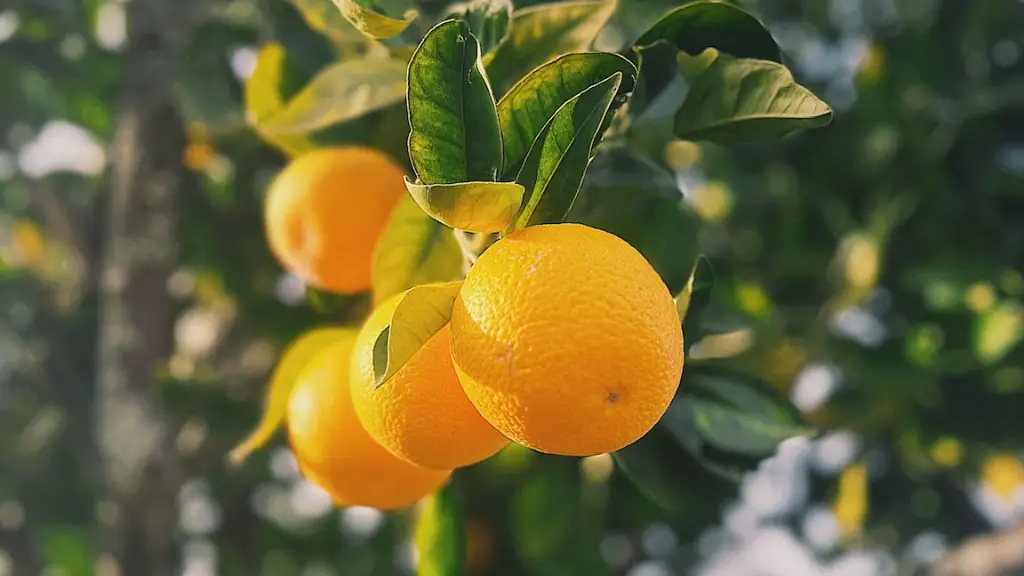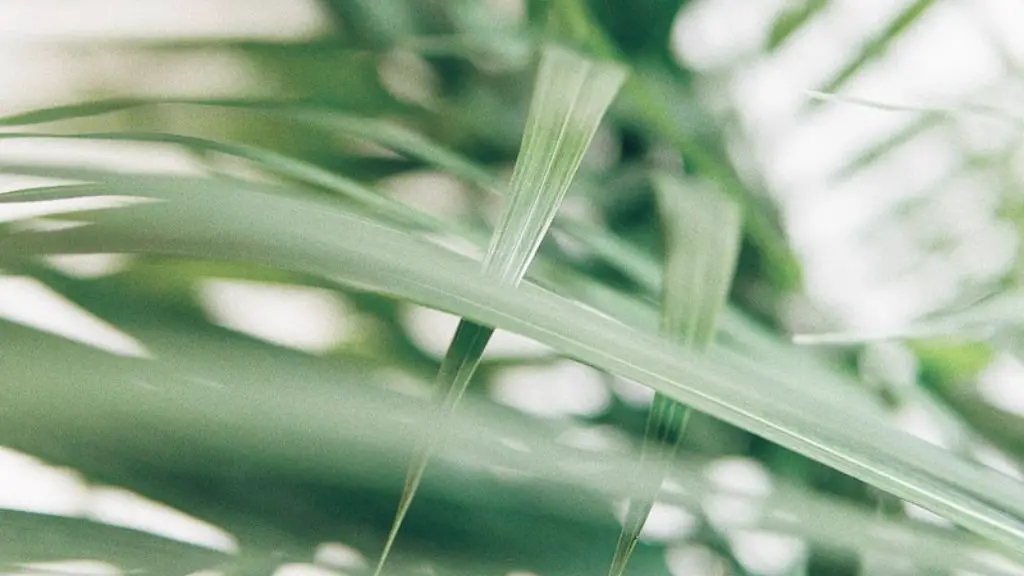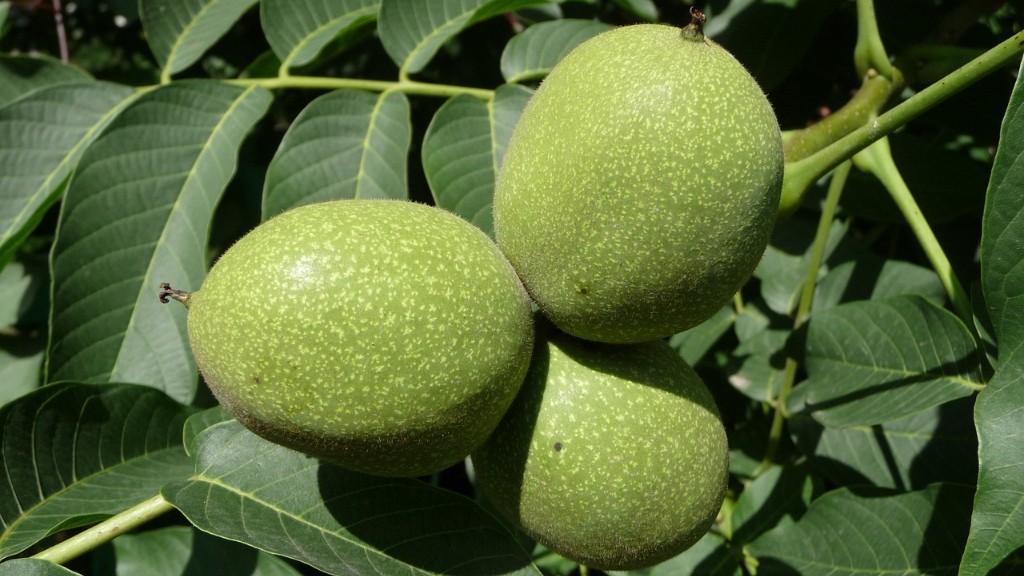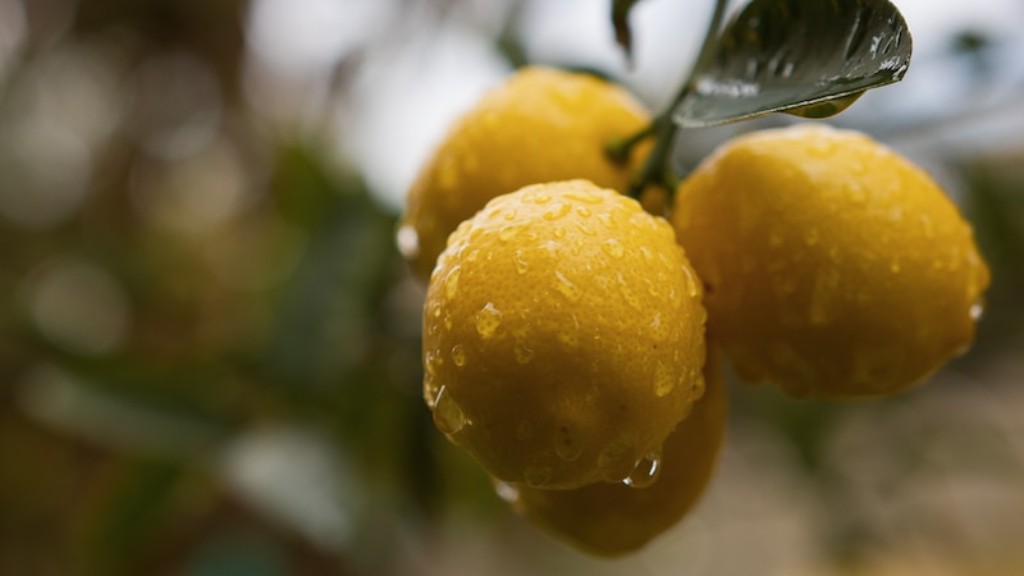Why Is Lemon Tree Not Fruiting?
Lemon tree not fruiting is a common problem, and can be caused by a variety of reasons including changes in water, nutrient availability, temperature, and even pests. Understanding what’s causing the lemon tree to not fruit can help you resolve the problem and see a harvest of juicy lemons soon.
The most common reason a lemon tree will not fruit is a lack of adequate pollination. This can be caused by a variety of factors such as a lack of bees or wind in the area, a lack of pollen production in the tree, or heavy winds and cold temperatures that can cause the flowers to drop off before pollination has occurred. If you live in an area where there is not much in the way of wind or insect activity, you can try hand-pollinating your lemon tree by lightly shaking the tree to disperse the pollen.
Temperature is also an important factor in why lemon trees won’t fruit. Lemon trees require temperatures between 15-20°C during the day and 7-10°C at night in order to properly set and ripen fruit. If temperatures drop below the recommended range, the lemon tree may not set fruit. If temperatures are too high, the flowers may set, but the resulting fruit will be undersized and possibly not sweet.
Nutrient deficiencies can also be a reason for lack of pollination and a failure of the tree to set and bear fruit. The most common nutrient deficiencies in lemon trees include low levels of nitrogen, zinc and potassium. Applying an appropriate fertilizer once a month should resolve this issue and help the tree set and ripen fruit.
Pest infestations can be another reason a lemon tree fails to fruit. Citrus psyllid is a small insect that feeds on the sap of the tree’s leaves, shoots and flowers, causing them to become curved and distorted. In severe cases, the entire tree can be killed. To protect your tree, use an insecticide and monitor your tree on a regular basis.
Lastly, pruning can also cause lemon trees not to fruit. If a lemon tree is over-pruned, it can be weakened and may take some time for the tree to recover and begin setting and ripening fruit. If your lemon tree is over-pruned, you may need to wait until the next season to see any harvest.
Water Regime and Lemon Trees
Water is essential for lemon tree growth and fruiting and when managed correctly, it can help to optimize the lemon tree growth and yield. Without adequate water, lemon trees can become stressed, resulting in growth and fruiting problems. Ideally, lemon trees should be watered to a depth of 1-2 feet in the soil, preferably in the morning or afternoon so that the water has ample time to distribute and be absorbed before the sun goes down.
Lemon trees are especially sensitive to overly wet soils. If the soil that the tree is growing in remains saturated for days or weeks on end, the roots of the tree can be suffocated and eventually die, leading to reduced tree health and decreased yields. Therefore, regular irrigation of the tree must be balanced with ensuring that the soil is not waterlogged, as this may lead to root rot and citrus cankers.
In the summer months, it is important to keep the soil evenly moist and not allow the tree to go through periods of extreme drought. The soil should be moist but not soggy. During the cooler months, watering can be delayed and reduced, as the demand for water required by the tree decreases in cooler temperatures.
Finally, mulching around the lemon tree is an important way to conserve soil moisture and prevent drastic fluctuations in temperature. Mulching helps the soil to hold water and nutrients while preventing the soil from becoming water logged.
Fertilizing Lemon Trees
On top of providing the lemon tree with adequate water and mulching, fertilizing the soil can help to ensure an optimal yield of quality lemons. Fertilizing helps to replenish the soil of essential nutrients which are depleted by regular watering and general growth of the tree. Depending on the age and the size of the tree, lemon trees should be fertilized 3-4 times a year.
When it comes to the type of fertilizer to use, choosing one with a balanced NPK ratio of 10:5:5 is recommended. A fertilizer with a higher ratio of nitrogen, such as a 10:10:10 fertilizer can be used as well. Typically, with established trees, one application of approximately 1-2 kg of fertilizer should be sufficient.
When fertilizing lemon trees, it is important to not overdose them with fertilizer. Too much fertilizer will cause an excessive amount of foliage at the expense of fruit yield, and consuming too many nutrients can lead to root burn. Therefore, it is important to apply just enough fertilizer to allow the tree to continue to grow and produce an ample harvest of juicy lemons.
At the same time, it is equally important not to under-fertilize the tree. Without sufficient levels of essential nutrients, growth of the tree can be stunted and fruiting can be inhibited. Therefore, it is important to find the correct balance between providing enough nutrition and not too much.
Soil PH and Lemon Trees
For optimal growth and fruiting, lemon trees prefer soils with a pH between 6.0-6.5. A soil with a pH below 6.0 is considered acidic, while soil with a pH above 6.5 is considered slightly alkaline. If the soil pH is outside of the ideal range, it can lead to nutrient deficiency and reduced growth, fruiting and yield of the tree.
When testing the soil pH, it’s important to test the soil in multiple locations around the tree’s root system. This helps to identify any pH variations within the soil which can affect the root system of the tree as well as its eating buds. If the pH is found to be too low, lime can be added to raise the pH of the soil.
On the other hand, if the pH is too high, sulfur can be added to the soil to lower the pH. When applying lime or sulfur to the soil, it is important to follow the recommended dosage as indicated on the packaging. Typically, adding 1-2 kg of lime or sulfur to an established tree should be sufficient.
In addition, amendments such as compost or peat moss can be added to maintain and regulate the pH of the soil, while providing additional nutrients which can help support root development and overall tree health.
Pollinating Lemon Trees
Ensuring adequate pollination is essential for lemon trees to set and ripen fruit. If pollination is inadequate, the lemon tree may fail to set and bear fruit. There are a few ways to increase the chances of adequate pollination for lemon tree.
The first is to encourage natural pollinators such as bees and other insects in the vicinity of the tree. This can be done by providing a source of nectar and pollen, such as flowers or herbs, nearby. The second is to use hand-pollination. This involves taking an artist’s brush or cotton swab and gently brushing the flowers to collect and transfer the pollen from the male to female parts of the flower.
If the tree is in close proximity to another tree of the same variety, cross-pollination can also be achieved. The male flowers of one tree, which contain the pollen, are transferred to the female flowers of the other, thereby providing the necessary pollination.
Lastly, it is possible to pollinate a lemon tree with store-bought pollen or pollen extracted from flowers, though it should be noted that this may not be as effective as natural pollination.
Disease Control and Lemon Trees
Lemon trees can also fail to set and bear fruit due to disease caused by bacteria, fungi or viruses. The most common diseases to affect lemon trees include citrus canker and citrus psyllid. Citrus canker is caused by a bacterium that infects the foliage, twigs, and branches of citrus trees and can be prevented by controlling humidity and avoiding too much nitrogen in the soil.
Citrus psyllid is a small sap-sucking insect which causes distortion of the leaves and shoots, as well as reduced fruit set and yield. It is important to monitor your tree for the presence of this insect and take the necessary measures to control and eradicate the pest. Applying an insecticide registered for use against citrus psyllid can help to manage and prevent infestations.
In addition, bacterial blight and rust mite can also cause reduced fruit set, yield and tree health. If your tree is infected with any of these diseases, it is important to consult your local plant health center or agricultural advisor for help in managing and controlling the disease.





